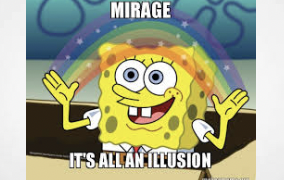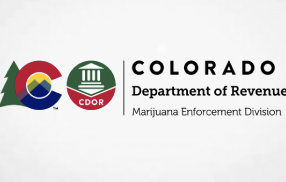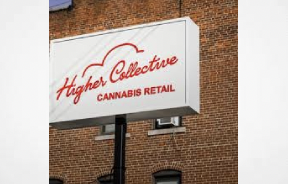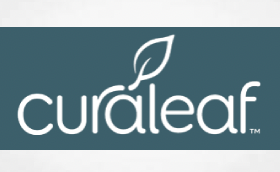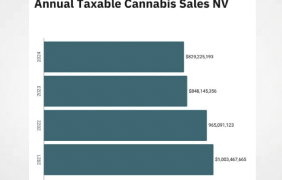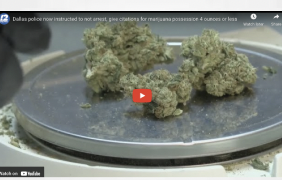This story has been knocking around for a number of weeks now.
Grant Smith-Ellis says he can now confirm the whole thing was a mirage and also what seems almost beyond believable is that Dr. Julie Johnson the CCC’s own director of research says was she denied access to the CCC’s internal data from testing labs and that, when she eventually saw that data, there was clear evidence of fraud.
31 October
By: Grant Smith-Ellis
Per sources directly familiar with recent developments, I can now confirm that a purported “secret shopper program” designed to protect public health and ward off fraud by testing labs — that was supposedly in existence under existing Massachusetts CCC regulations (and state law) for over six years– does not actually exist.
This news was hinted at in recent months by The Boston Globe –and at a major legislative hearing on Wednesday related to serious allegations of abuse and cover-ups within the agency that was the talk of every corner of state government– when the only lab in the state contracted to do such “secret shopper” testing confirmed that CCC staff had never sent a single sample to said lab for testing.
Because the CCC does not have a standards lab of its own, and because I can now confirm that CCC staff working on the “secret shopper project” –that exists under 935CMR500.303 (1-5) [Page 143]— have not even figured out basic foundations for the program (such as how the product would be purchased, transported or stored by the agency), this news is even more concerning (as that means no one at the agency is doing confirmatory off-the-shelf testing of any kind).
My sources report that, because the program does not actually exist, the agency has decided to attempt to use the “secret” nature of the work on the project to give the impression to stakeholders that such a program does exist (apparently for the purposes of deterrence).
I. Citizens Stepping Up to Fill the Gap
Previously, reporting on this feed confirmed that, in lieu of the CCC doing its job, citizen secret shoppers had begun to do their own “off the shelf” auditing.
That process, in turn, confirmed that a number of products being sold on the adult and medical use market in Massachusetts were dangerously contaminated with yeast and mold (despite having received a “pass” on initial testing). See that reporting here – https://www.instagram.com/p/CvaQ280LODJ/?img_index=1
[Of note: this citizen-led testing was only made possible because one lab, Pro Verde, took on the burden of providing free testing for members of the public.]
In January of 2024, CCC Commissioner Kimberly Roy attempted to bring public attention to the potential that this secret shopper program was not operating as intended, but the discussion was shut down by Roy’s colleagues – https://www.instagram.com/p/C19xLzdsRy3/
Indeed, per another set of data, published on this feed in recent months, at least four testing labs in the Commonwealth may be manipulating pass/fail rates for total yeast and mold (this could be due to either the use of the “grim reefer” — which manipulates PCR tests by removing both live and dead DNA before the test is run–, the use of new hybrid PCR testing methods which, in the eyes of some, have raised questions about their AOAC approval, or other forms of misconduct). See that data here – https://x.com/GrantSmithEllis/status/1729652673744384320
[Of note: an AOAC approval is a type of comparison-standardization process, by which all forms of testing (in this context) are measured against which is called “plating” –which is the industry standard– to confirm that these new methodologies can produce results on par with said plating results.]
II. CCC Research Director Denied Access To Agency’s Own Testing Data
Interestingly, in a recent article from the WBJ, Dr. Julie Johnson (the CCC own director of research, who is currently on leave) noted that, for years, she was denied access to the CCC’s internal data from testing labs and that, when Dr. Johnson eventually saw that data, there was clear evidence of fraud.
If this situation related to a potential cover-up of extensive testing lab fraud in Massachusetts played a role in the recent resignation of CCC testing lab director James Kocis, who used to work for a lab called Steep Hill/Green Analytics (that has been alleged to, itself, have been involved in passing dangerous product from Holistic Industries during Kocis’ times working at the CCC, and during a time when Holistic was under investigation by the agency), is unclear. Read more about Kocis’ resignation here – https://www.patreon.com/posts/breaking-news-of-109805610
Notably, there has never been a product recall ordered by the CCC at any time (as other states have done in light of similar concerns) despite the agency’s own recent enforcement order against Holistic Industries indicating dangerously contaminated products had been produced, packaged, and sold on to retailers throughout the state for months. Read more about that enforcement order here – https://www.patreon.com/posts/111062533
With the CCC currently the subject of multiple state-led investigations (including by the Auditor and the Inspector General), along with a reported federal probe into the staff of the agency itself, there is no question that something deeply concerning is lurking under the surface of not only this testing lab fraud/contaminated products issue, but also the insidious series of conflicts of interest that permitted potentially hundreds of millions, if not billions, of dollars worth of dangerous products to reach consumers (be they of medical or adult use products) in Massachusetts over recent years.
And, indeed, “pretending” that a secret shopper program exists, when it does not, fits in-line with exactly the kind of thing that could bring even further oversight-based-scrunity of an agency already frozen in place (much like a deer in headlights that it knows it cannot avoid).
Then again, I suppose that’s what happens when nearly every department director within a government agency has either resigned, been suspended, or forced to take personal leave due to this ever-conflgrating chaos that is occurring within a once-renowned regulatory respite.
